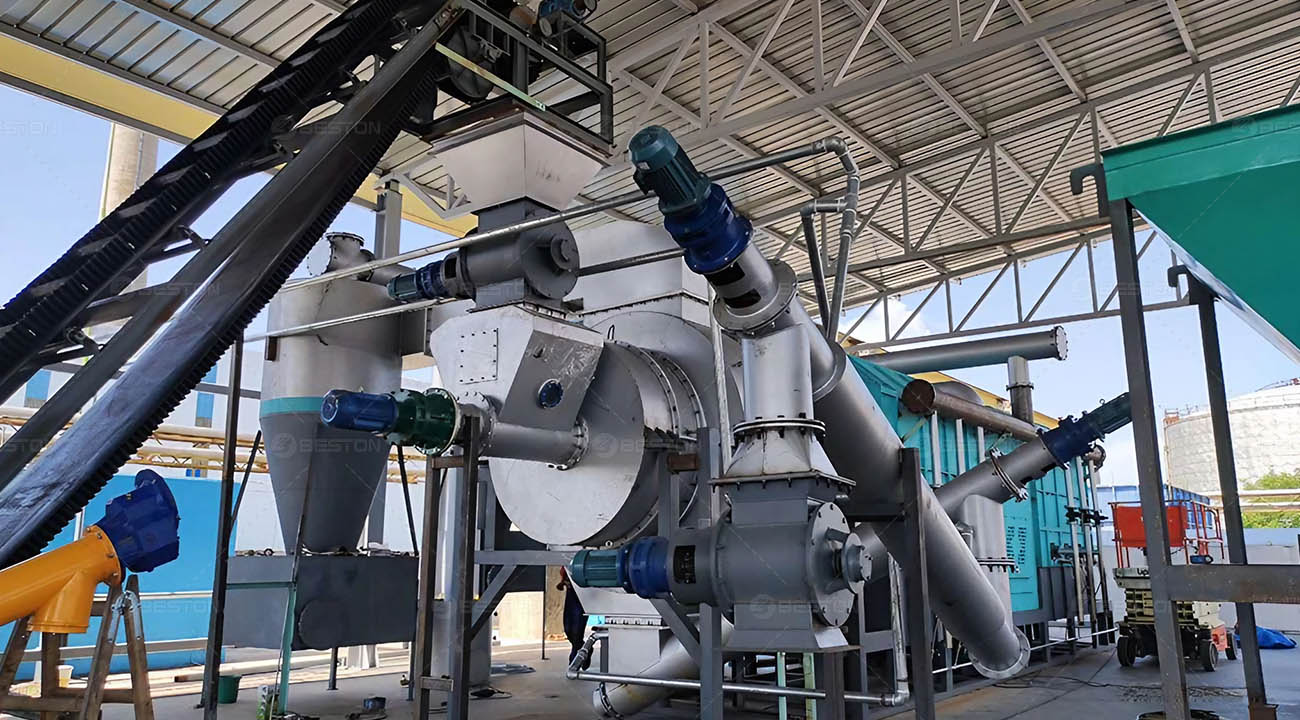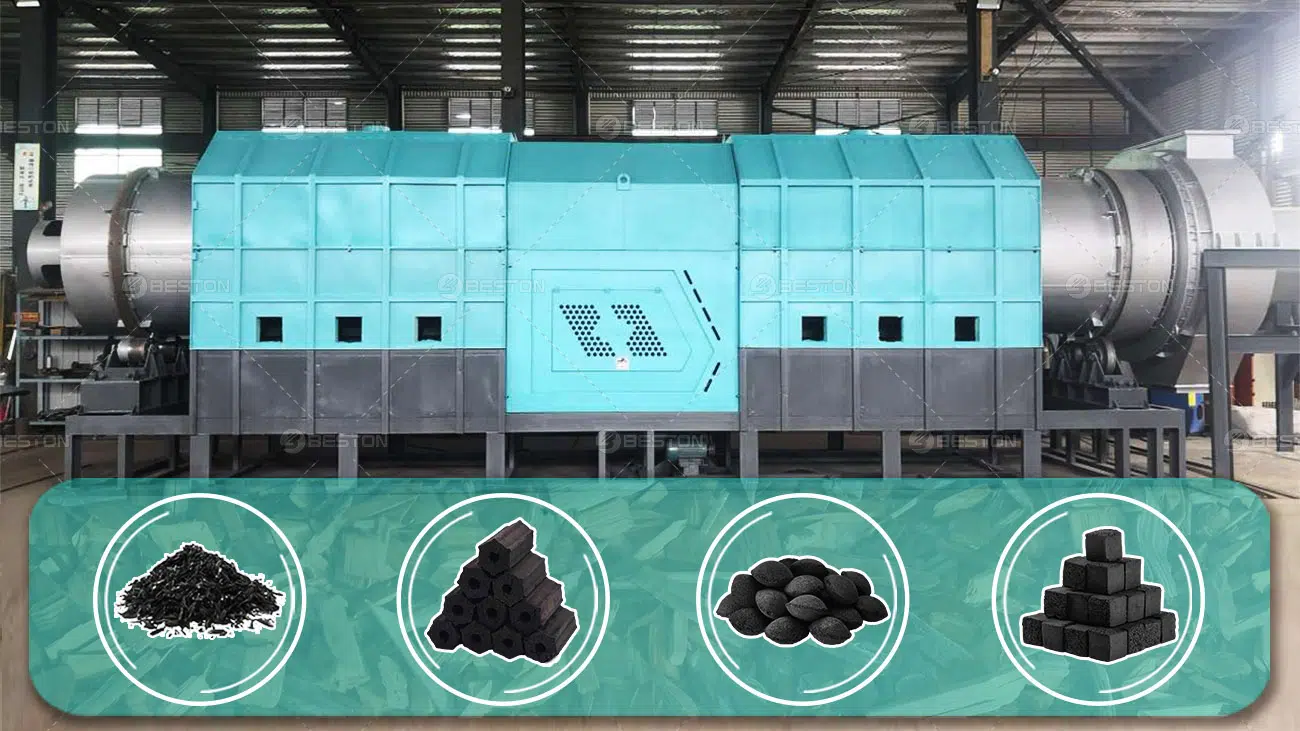Straw, an abundant agricultural residue, offers a sustainable solution to environmentalchallenges when converted into charcoal. Utilizing a straw charcoal machine, this process transforms waste into a valuable resource while significantly reducing ecological impacts. The environmental benefits of this practice are multifaceted, addressing issues ranging from waste management to carbon sequestration.

Mitigating Agricultural Waste
Agricultural practices generate vast quantities of straw, often left unused or disposed of through open burning. This traditional method contributes to air pollution, releasing harmful particulates and greenhouse gases. By converting straw into charcoal, these emissions are effectively mitigated.
The adoption of straw charcoal machine eliminates the need for open burning, reducing pollutants such as carbon monoxide and black carbon. This transition not only improves air quality but also aligns with global efforts to combat climate change.
Renewable Energy Source
Straw charcoal serves as an efficient and renewable energy source, replacing fossil fuels in various applications. Its high calorific value makes it suitable for domestic heating, industrial processes, and electricity generation.
Unlike coal and other non-renewable resources, straw is a replenishable material, readily available after each harvest. This cyclical nature underscores its role in creating a sustainable energy system.
Enhancing Soil Fertility
The byproducts of straw charcoal maker machine, such as biochar, offer substantial benefits for soil health. When applied to agricultural land, biochar improves soil structure, enhances water retention, and promotes nutrient availability.
Biochar’s porous structure provides a habitat for beneficial microorganisms, fostering a thriving soil ecosystem. Additionally, its ability to sequester carbon contributes to long-term soil fertility while reducing atmospheric CO₂ levels.
Reducing Greenhouse Gas Emissions
Straw decomposition in fields releases methane and nitrous oxide, potent greenhouse gases with significant global warming potential. Converting straw into charcoal through a controlled process curtails these emissions.
A straw charcoal briquette machine employs pyrolysis, a thermal decomposition method that minimizes greenhouse gas output. The resulting charcoal acts as a stable carbon sink, effectively locking carbon away for extended periods.

Addressing Deforestation
The increasing demand for wood-based charcoal has led to widespread deforestation, exacerbating environmental degradation. Straw charcoal production offers an alternative that alleviates pressure on forests.
By utilizing agricultural residues, this practice reduces the need for wood harvesting, conserving biodiversity and protecting critical ecosystems. This shift contributes to global reforestation initiatives and supports sustainable resource management.
Circular Economy Integration
The integration of straw charcoal production into agricultural systems promotes a circular economy. This approach emphasizes resource efficiency by repurposing waste into valuable products. If you would like to obtain more information on waste recycling, please contact Beston Group.
Farmers benefit from reduced disposal costs and the creation of an additional revenue stream. Furthermore, the utilization of straw charcoal in local communities fosters economic resilience and environmental stewardship.
Energy Efficiency in Production
Modern straw charcoal machines are designed for optimal energy efficiency, utilizing advanced technologies to minimize energy consumption. Features such as heat recovery systems and automated controls enhance operational sustainability.
The reduced energy input not only lowers production costs but also minimizes the carbon footprint of the manufacturing process. This efficiency underscores the environmental advantages of adopting state-of-the-art equipment.
Contribution to Global Climate Goals
Straw charcoal production aligns with international climate objectives, including the United Nations Sustainable Development Goals (SDGs). It addresses targets related to clean energy, climate action, and sustainable communities.
By adopting this practice, industries and individuals contribute to reducing carbon emissions, promoting renewable energy, and fostering sustainable development.
Final Reflections
The environmental benefits of straw charcoal production extend beyond waste management, offering solutions for energy sustainability, soil enhancement, and climate change mitigation. Leveraging a straw charcoal machine transforms agricultural residues into a powerful tool for ecological preservation and economic growth. This innovative approach exemplifies the potential of sustainable practices to drive positive environmental change.